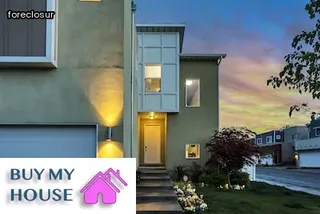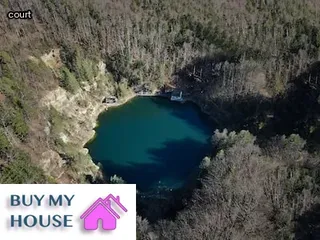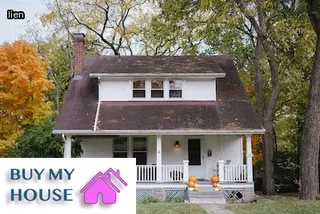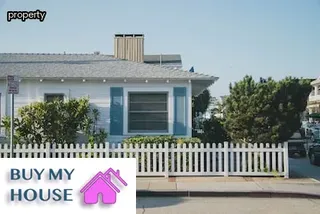In California, Homeowners' Associations (HOAs) are responsible for collecting dues from their members. These dues are used to pay for services such as maintenance of common areas, community events, and other shared amenities.
When a homeowner fails to pay their HOA dues, the HOA is legally allowed to take steps to collect any unpaid fees and interest. There are several policies in place to ensure that HOAs can effectively collect unpaid fees and interest from delinquent homeowners.
In most cases, HOAs must provide homeowners with a written notice of the amount due and a specified time period for payment. If the homeowner fails to make payment within this timeframe, then the HOA may pursue further legal action including filing a lien against the property or initiating foreclosure proceedings.
Additionally, many HOAs may also charge late fees or interest rates on unpaid balances in order to incentivize homeowners to pay promptly. It is important for homeowners to be aware of their HOA's collection policies so they can avoid potential penalties or legal action due to delinquent payments.

In order to collect unpaid Homeowners' Association (HOA) fees, the board of a California HOA must be diligent in following up on late payments. The board should begin by notifying members of the association that their dues are overdue and outlining the consequences of nonpayment.
Generally, if dues remain unpaid after 30 days, a late fee can be added to the balance due. If payment is not received within 60 days, the board may consider taking legal action or placing a lien on the property.
It is also important to ensure that interest is being charged on past due payments as required by law. Ultimately, it is important for boards to have an efficient system in place for tracking and collecting unpaid dues in order to protect both their members and the association's finances.
When it comes to collecting unpaid homeowners' association dues, placing a lien on the delinquent owner's property is often the last resort. Liens are legally enforceable claims against a property that can be enforced by foreclosure if not paid.
While the threat of foreclosure should always be avoided if possible due to its significant impact on the homeowner, lien placement can be an effective means of collecting outstanding assessments in California. In order to do so, the association must first provide notice of delinquency and offer an opportunity for payment before going forward with lien placement.
In addition, all applicable fees and interest rates must be included in the amount claimed in order to ensure that there is no violation of state law. If a reasonable effort has been made to collect overdue payments and all applicable laws have been followed, filing a lien may ultimately be necessary for successful collection of unpaid fees.

Enforcing a Homeowners' Association's collection policies is an important part of maintaining the financial health of the organization. It is essential for board members to understand their legal rights in order to take appropriate action to collect unpaid dues and interest, as well as any late fees associated with them.
In California, HOAs have the ability to record and enforce liens against delinquent owners, which can help to ensure that all homeowners are paying their fair share. Board members should also consider implementing payment plans or other methods of assistance for those who are unable to make full payment on time.
Additionally, they may want to consider setting up a system of automatic payments in order to reduce the risk of delinquency. Finally, board members should ensure that clear communication is sent out regarding due dates and potential legal consequences for failing to pay on time.
When it comes to dues and fees, California homeowners’ associations have the right to collect full or partial payments. Some HOA boards might be reluctant to accept partial payments for fear of creating a precedent that could lead to more non-payment and delinquency in the future.
However, there are some benefits to accepting partial payments like providing members with an option for payment when they may not be able to make the full amount at once. HOAs should consider their options and create clear guidelines for homeowners regarding payment of dues and fees, including whether or not they will accept partial payments.
The board should also consider setting up a payment plan that allows the homeowner to pay off any remaining balances over time with interest. Ultimately, each HOA has different needs and resources, so it's important for boards to determine what is best for their individual association when considering how to handle unpaid dues and fees.

The legal consequences of not following statutory requirements when placing a lien on California homeowners' association dues can be severe. It is essential to understand the statutes and laws in your state and adhere to them in order to avoid any potential liabilities or penalties.
In California, failure to comply with the law can result in a lien that is unenforceable, meaning it cannot be collected from the delinquent homeowner. Additionally, if the HOA does not file an action within six months of recording a lien, the homeowner may be able to have it released through their own court action.
Furthermore, failure to provide proper notice prior to filing a lien may lead to civil litigation against the association for damages caused by an improper filing. Finally, if interest is not properly charged on unpaid dues and fees, it may invalidate the entire lien and require repayment of all fees previously collected without interest.
Strict adherence to statutory requirements when placing a lien is essential for associations looking to collect unpaid dues and interest from California homeowners.
Homeowners' Association (HOA) boards play an important role in collecting unpaid dues and interest from delinquent members. It is important for HOA boards to understand their rights and responsibilities when it comes to collections.
For example, HOAs have the right to pursue legal action against members who have not paid their dues or interest, such as filing a lien on the delinquent member's property. In addition, most HOAs have a right of first refusal when it comes to foreclosure proceedings initiated by creditors or lenders due to unpaid dues or interest.
An HOA board should also be aware that they are responsible for following applicable laws and regulations when dealing with delinquencies, including state laws regarding collection agencies and debt collection practices. Furthermore, many states require an HOA board to provide notice of delinquency to members before taking any action against them.
Finally, an HOA board should consider developing procedures for handling delinquencies and collections so that all members are treated equitably and fairly according to established rules.

California Homeowners' Associations (HOAs) must collect unpaid dues and interest from their members in order to stay financially sustainable. To effectively increase collection efficiency, HOAs should create a user-friendly payment system and clearly communicate the due dates and associated interest rates for all unpaid fees.
Automated systems that send regular reminders can help ensure that members are notified of any outstanding payments before they're overdue. Offering various methods of payment, such as online, by mail, and through automatic payments, can also help streamline the process and make it easier for members to pay on time.
Additionally, implementing fines or other penalties for late payment can incentivize members to remain current on their dues. Finally, following up with delinquent members and engaging in meaningful dialogue about payment plans may be necessary to successfully collect any remaining unpaid fees.
When it comes to collecting unpaid dues and interest from members of a California Homeowners' Association, there are various methods available. Some of the pros of using an outside collections agency include that they can be highly effective in recovering payments, they provide additional legal support if needed, and they have experience in dealing with difficult debtors.
The cons are that it can be costly to use their services, they may not be familiar with HOA laws, and they could damage relationships between board members and homeowners. Another method is to send out reminder letters or emails to delinquent members.
This is often the least expensive option but its success rate depends on how quickly members respond. There is also the option of using small claims court for more serious delinquencies.
This provides an official legal process for collecting fees but it can take time and cost money for filing fees. Ultimately, the board will have to decide which collection method works best for their particular situation.

Many California homeowners find themselves behind on their HOA dues for a variety of reasons. Some may not have the financial means to pay the full amount at once, while others may not be aware that they owe money and are in arrears.
Additionally, some homeowners may view the HOA fees as an additional expense they can go without or decide to pay late. In addition to these factors, economic changes such as job losses or reductions in salary can cause homeowners to fall back on payments.
Ultimately, it is important for Homeowners' Associations to understand why some members are unable to keep up with their dues so they can adjust their payment plans accordingly and keep everyone current.
When California homeowners don't pay their association dues, recovery of unpaid fees and interest can be a difficult process. Fortunately, working with an attorney to facilitate collections has many advantages.
An attorney is knowledgeable about the legal requirements of assessments, can review existing documents to ensure the collection process is within the framework of the law, and can bring formal legal action if necessary. Hiring an attorney also saves time for board members as they are able to focus on other important tasks in running their association.
An attorney will also have access to a variety of resources and means for tracking down delinquent homeowners and collecting payments that individual board members may not be aware of. Finally, having an experienced professional handle collections allows for better risk management and protection against legal challenges by delinquent homeowners or any other parties involved in the collection process.

Homeowners' Associations in California are responsible for collecting unpaid assessments from delinquent members. When handling unpaid assessments, there are several common mistakes to avoid.
First, it is important to promptly send out a notice of delinquency to inform the homeowner they owe money and provide a deadline for payment. Second, the homeowner should be notified that interest will accrue on any unpaid amount after the due date.
Third, contact information should be included in the notice in case the homeowner has questions or needs additional time to pay. Fourth, all records of communications between the HOA and delinquent member should be kept in case legal action becomes necessary.
Lastly, consider offering payment plans or other options that could make it easier for delinquent members to pay what they owe. It is also helpful to remind homeowners of their obligations when possible and gently remind them of their duties as members of an HOA while still preserving good relations.
When it comes to California homeowners' associations, collecting unpaid dues and interest can be a difficult task. To avoid the time and expense associated with foreclosure, it is important to make sure that all procedures are followed in order to prepare a defensible claim.
This includes making sure that the bylaws of the association are adhered to when preparing for a potential foreclosure as well as ensuring that all members are aware of their responsibilities and obligations related to paying dues. Additionally, it is important to document any attempts made by the association to collect unpaid fees prior to initiating foreclosure proceedings, including sending out notices and following up with delinquent members.
All of these steps must be taken in order to prepare a defensible claim should foreclosure become necessary.
The statute of limitations for homeowners' associations in California is governed by the Davis-Stirling Common Interest Development Act. Under this act, HOAs have four years to collect unpaid fees and interest.
This four-year period begins on the date the dues become delinquent, or when the association sends out a written demand for payment. It’s important to note that this statute of limitations does not include any legal fees or charges incurred as a result of collection efforts.
If those fees become part of the debt, then the association has an additional four years from the date that fee was incurred to collect on it. Therefore, it’s important for HOAs in California to take action quickly if they are seeking to collect unpaid dues and interest.

In California, homeowners' associations are allowed to impose late fees for unpaid dues and interest. The amount of the late fee is limited by California Civil Code §5655, which states that the maximum allowable late fee is $20 plus 10% of the delinquent assessment.
Additionally, California law allows homeowners' associations to charge a late fee of up to 12% per year on delinquent assessments. It should be noted that each association must establish their own policies regarding late fees and they may not exceed these limits.
Homeowners' associations should also ensure that all members are aware of their policy and collection procedures when it comes to collecting unpaid HOA dues and interest in order to remain compliant with California laws.
Yes, HOA fines are enforceable in California. In fact, California has a state-wide law that requires homeowners to pay all assessments, fees, and fines imposed by their Homeowners' Association (HOA).
The Davis-Stirling Common Interest Development Act governs the collection of unpaid dues and interest from delinquent members in California. Under this Act, HOAs can sue for these unpaid amounts and potentially foreclose on a homeowner's property if they fail to pay them.
HOAs can also charge interest on any unpaid amounts from the date due until the date paid. Furthermore, an association may place a lien against any delinquent member's property for any unpaid assessments or fines.
This lien can be enforced through a court action or foreclosure sale. Ultimately, it is important for California homeowners to stay up to date with their HOA dues and payments as failure to do so can lead to serious consequences.
Yes, HOA liens survive foreclosure in California. According to the California Department of Real Estate, a homeowner's association lien is not extinguished by a foreclosure sale.
This means that even if the lender forecloses on the property, the homeowners' association can still claim its unpaid dues as well as any interest and penalties that have accrued. A lien is considered a legal claim against the property and will remain until it is paid off.
In some cases, if the amount owed to the association exceeds the proceeds from a foreclosure sale, then the lender may be liable for paying off such debts. However, this depends upon individual state laws and it is important for homeowners to understand their local regulations when it comes to HOA liens and foreclosures.